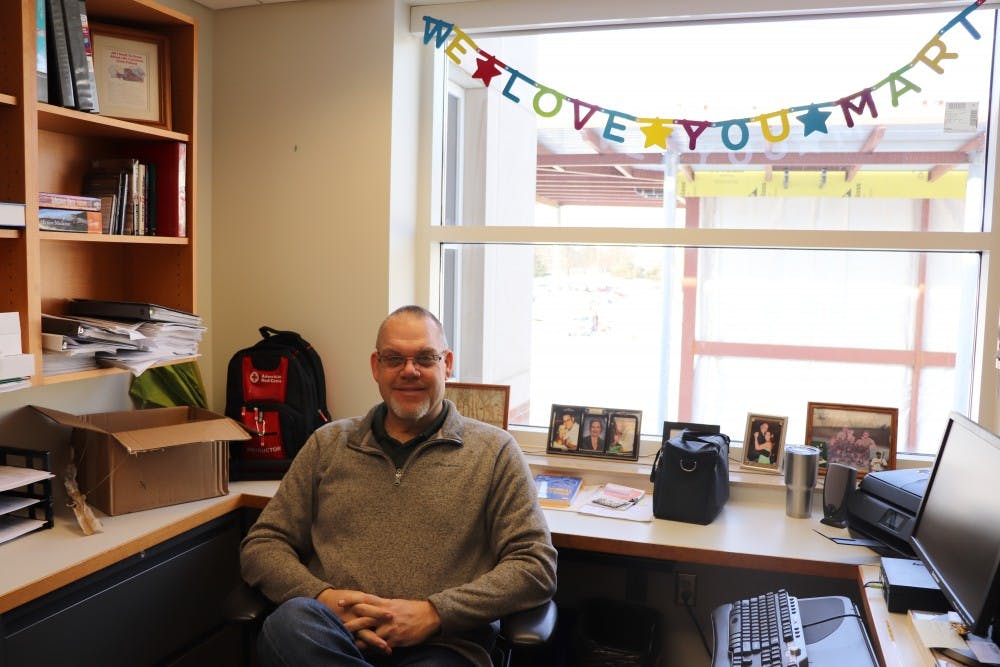Q&A: School of Health Sciences faculty discusses his work in substance abuse education
School of Health Sciences faculty member Marty Malcolm has dedicated his life to substance abuse education.
Malcolm graduated from Central Michigan University with a major in community health with a minor in substance abuse, and currently serves as an adviser for the substance abuse disorder minor. He worked as a therapist for 12 years, and has been at CMU for 15 years
Central Michigan Life sat down with Malcolm to discuss why he chose a minor in substance abuse, and why he thinks its applicable in any line of study.
CM Life: What courses do you teach and what are your passions?
Malcolm: I teach the "Responding to Emergencies" course here on campus, where we teach First-Aid, CPR, things like that. That’s actually my second passion, my first passion is substance abuse.
I believe whole heartedly that the Substance Abuse Disorder minor is one of the best minors to have because it affects everybody. I always say it’s not too far from people’s roots, and it’s a great minor that can be used in combination with many majors across this campus.
Where were you a counselor?
I did residential drug treatment centers and I was a clinical supervisor in Bay City. I also opened up two outpatient substance abuse clinics in Skidway Lake and Rose City, which are really rural areas. (I worked for) Ausable Valley Mental Health, where I was the clinical supervisor, the director and opened satellite locations. For eight years, I was with the Saginaw Chippewa Indian Tribe as the use specialist and clinical supervisor.
What inspired you to open those centers?
To be able to give back to the rural communities. It’s amazing to me to see how much the rural communities really and truly go without. I think there are not many choices for people in those rural communities, other than they feel they have to drink or do drugs in order to deal with that.
Where I come from, it’s almost like there is a bar on every corner. Getting people back their lives and having them learn to gain control once again. That they are in control of their own destiny and drugs and alcohol doesn’t have to be that destiny.
What inspired you to minor in substance abuse?
What inspired me back then was that I saw family members, I saw friends and family, that were struggling with (substance abuse). I also knew that it was going to be a huge problem. I had early-on instruction from some of my professors that it was going to be a hot topic and sure enough, we are looking 20-some years later and it is a hot topic. It has always continued to be a hot topic, whether it be the opioid crisis, binge drinking and alcohol, the passing of the new marijuana law, I mean it’s definitely a hot topic.
Why do you encourage students to minor in substance abuse?
For people who are thinking about becoming a physical therapist or a physician’s assistant or an occupational therapist, they are going to be seeing people that have addiction issues. Then there is the counseling aspect of it, where we get into counseling, the psychology majors, and the social work majors, they see that every day.
I see it in prevention or intervention – getting out to the early adolescence, getting out to people around the community about what’s happening with drugs and alcohol.
Usually substance abuse is not too far away from our family tree – in the roots that we come from and that’s why I am so passionate about it and see it going with every major here. A business major, an entrepreneurship major, I always see it going with those because they are going to be in charge of people, in charge of businesses and they are going to be hiring people that have substance abuse issues. It’s just a great all-around minor to have.






